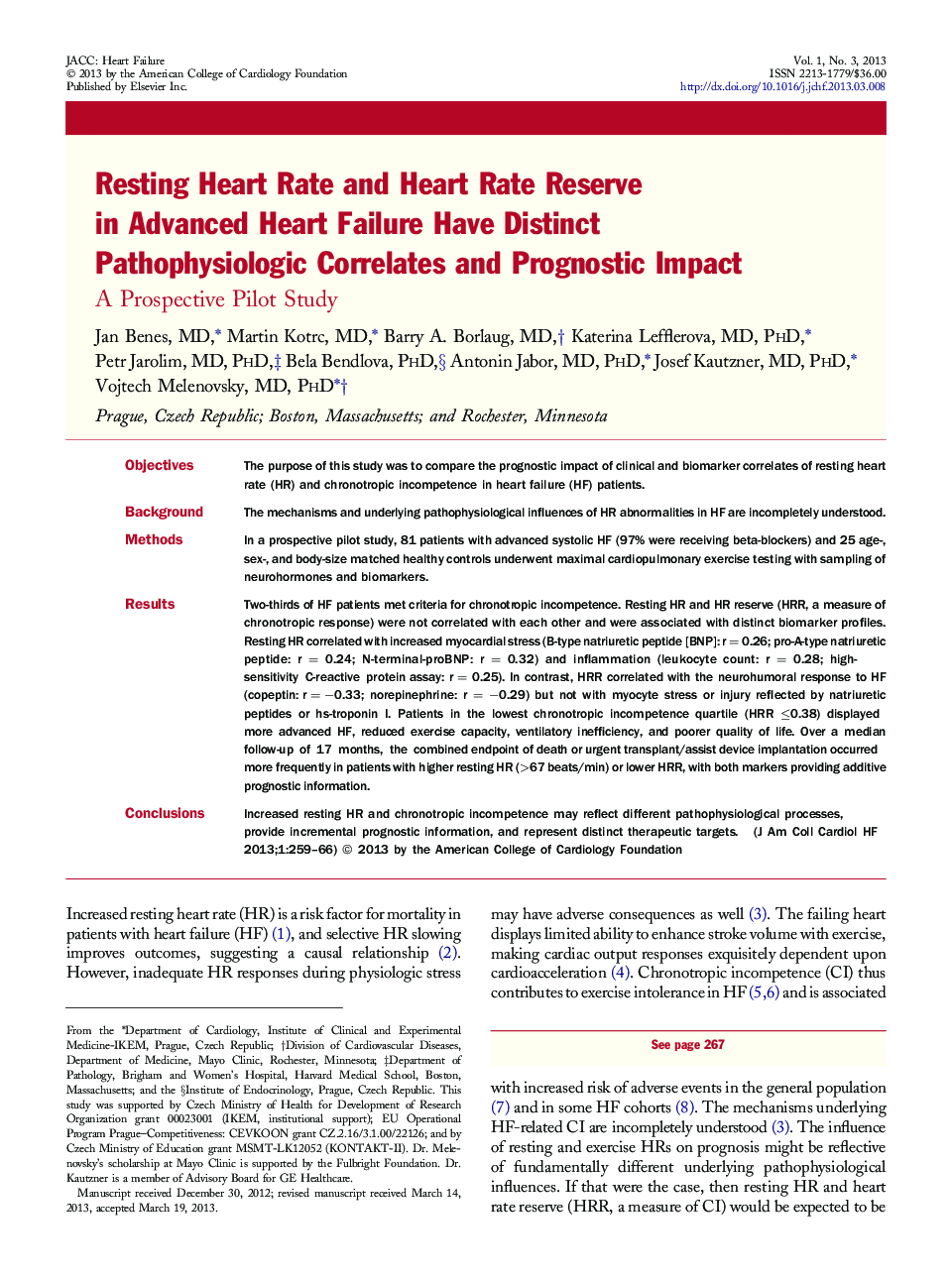| Article ID | Journal | Published Year | Pages | File Type |
|---|---|---|---|---|
| 2942640 | JACC: Heart Failure | 2013 | 8 Pages |
ObjectivesThe purpose of this study was to compare the prognostic impact of clinical and biomarker correlates of resting heart rate (HR) and chronotropic incompetence in heart failure (HF) patients.BackgroundThe mechanisms and underlying pathophysiological influences of HR abnormalities in HF are incompletely understood.MethodsIn a prospective pilot study, 81 patients with advanced systolic HF (97% were receiving beta-blockers) and 25 age-, sex-, and body-size matched healthy controls underwent maximal cardiopulmonary exercise testing with sampling of neurohormones and biomarkers.ResultsTwo-thirds of HF patients met criteria for chronotropic incompetence. Resting HR and HR reserve (HRR, a measure of chronotropic response) were not correlated with each other and were associated with distinct biomarker profiles. Resting HR correlated with increased myocardial stress (B-type natriuretic peptide [BNP]: r = 0.26; pro-A-type natriuretic peptide: r = 0.24; N-terminal-proBNP: r = 0.32) and inflammation (leukocyte count: r = 0.28; high-sensitivity C-reactive protein assay: r = 0.25). In contrast, HRR correlated with the neurohumoral response to HF (copeptin: r = −0.33; norepinephrine: r = −0.29) but not with myocyte stress or injury reflected by natriuretic peptides or hs-troponin I. Patients in the lowest chronotropic incompetence quartile (HRR ≤0.38) displayed more advanced HF, reduced exercise capacity, ventilatory inefficiency, and poorer quality of life. Over a median follow-up of 17 months, the combined endpoint of death or urgent transplant/assist device implantation occurred more frequently in patients with higher resting HR (>67 beats/min) or lower HRR, with both markers providing additive prognostic information.ConclusionsIncreased resting HR and chronotropic incompetence may reflect different pathophysiological processes, provide incremental prognostic information, and represent distinct therapeutic targets.
